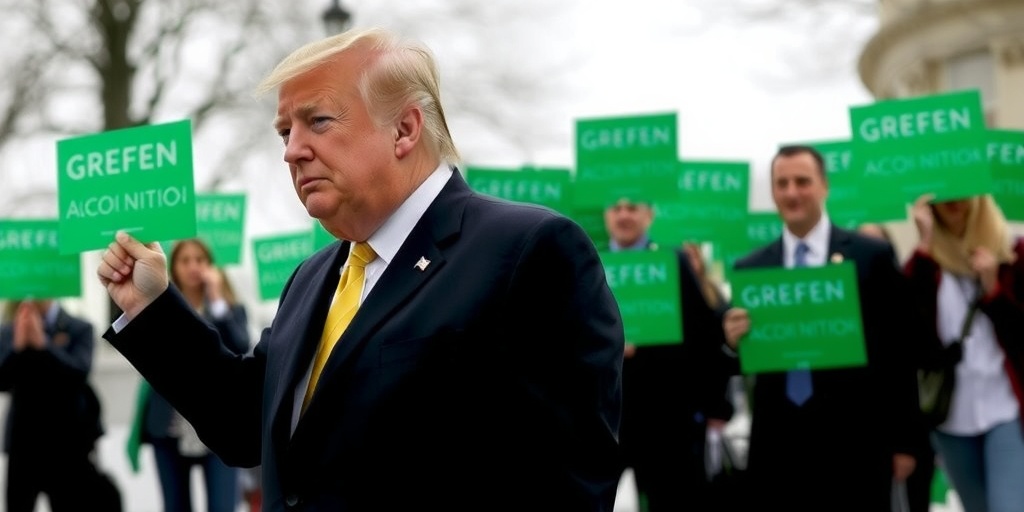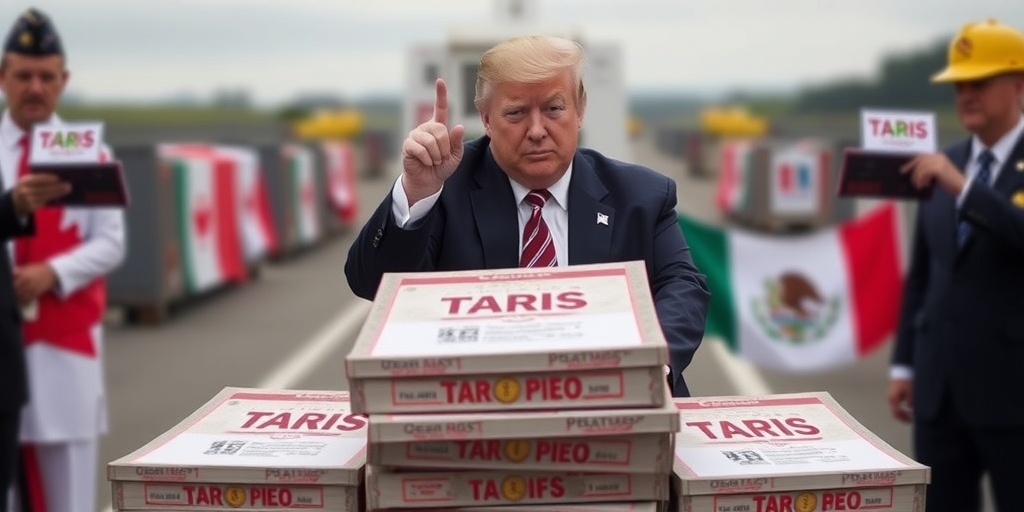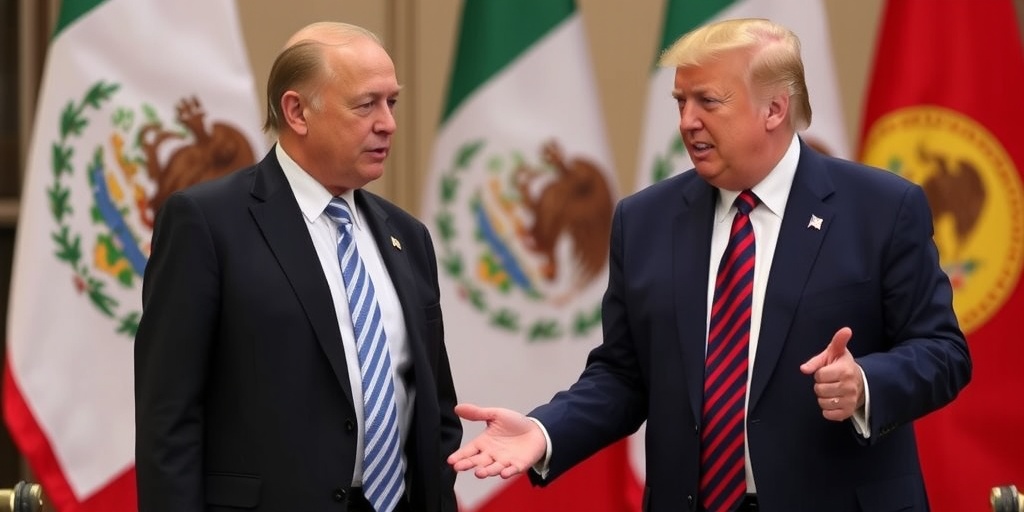Now Reading: Green Groups Face Cash Crunch After Trump Freezes $20 Billion
-
01
Green Groups Face Cash Crunch After Trump Freezes $20 Billion
Green Groups Face Cash Crunch After Trump Freezes $20 Billion

Title: Investigations Freeze Funds for Climate Change Initiatives Amid Controversy
In a significant setback for nonprofit organizations aimed at mitigating climate change, accounts holding approximately $20 billion allocated for environmental initiatives have been frozen. This action comes two weeks following claims of potential fraud articulated by Lee Zeldin, the Environmental Protection Agency (EPA) administrator. The subsequent investigations led by the FBI and the Department of Justice have raised alarm bells regarding the financial stability of these organizations and their ability to meet payroll obligations.
The funds, which were intended to be distributed by Climate United—a key organization that secured nearly $7 billion through a congressional program—are now inaccessible due to Citibank’s decision to freeze the accounts. Zeldin’s suggestions of possible malfeasance pushed the bank to take this unprecedented step, even after a prominent federal prosecutor determined there was insufficient evidence to warrant a criminal inquiry. When asked for a comment, Citibank declined to provide any further information about the matter.
While Zeldin has vehemently criticized the structure and operational policies of the funding program created by Congress and implemented by the Biden administration, he has yet to present concrete evidence of any criminal activities associated with the funds. This week, he requested an additional investigation through his agency’s acting inspector general, despite acknowledging that no wrongdoing had been established.
The ongoing funding freeze has placed Climate United and its partners in an untenable situation. Brooke Durham, a spokeswoman for Climate United, expressed urgent concerns about the negative impact of the funding freeze on the vital relationships they have cultivated over the years. She noted that the continuation of these financial constraints jeopardizes their capacity to pay their employees and fulfill commitments to various climate initiatives.
As the Trump administration seeks to probe the distribution processes related to the Inflation Reduction Act—an essential part of the Biden administration’s climate strategy—lawyers for Climate United have formally requested the EPA to clarify their actions. They highlighted the agency’s cancellation of a previously scheduled meeting on February 25 after it became known that Climate United’s legal team would be attend.
The Inflation Reduction Act emphasizes tax incentives for clean energy manufacturing and allocates billions for grants aimed at reducing emissions from fossil fuels. The money currently withheld originates from the Greenhouse Gas Reduction Fund, often referred to colloquially as the "green bank." By legislation, the EPA was mandated to distribute these funds to nonprofits, states, and other entities facilitating clean energy initiatives, especially in disadvantaged communities.
Zeldin has been particularly focused on the $20 billion allocated in April from this program, claiming concerns over possible corruption. Yet, Denise Cheung, a federal prosecutor in Washington, has pushed back against these allegations, citing insufficient evidence to justify any criminal proceedings or the freezing of bank accounts.
The Trump administration’s narrative connecting these funds to potential corruption appears to hinge on a covertly recorded video by Project Veritas, a conservative group known for its controversial tactics, including entrapment. In this video, a conversation with Brent Efron, a former EPA employee, suggests a frantic effort to distribute funds prior to the transition to the Trump administration. While Efron described the urgency of ensuring funds reached organizations swiftly, he clarified that the "gold bars" metaphor he used was not related to any of the currently frozen funds.
Mark Zaid, Efron’s attorney, stressed that the allocation in question had already been secured and obligated prior to those comments being made. Zaid’s defense of Efron includes addressing the fallout of this edited video, indicating that various stakeholders continue to scrutinize the matter.
Despite the controversies surrounding the funding, it has garnered substantial praise as a significant investment in community-centered climate projects. Kamala Harris, the former Vice President, touted it as the largest of its kind in U.S. history. As the situation develops, frustrations remain palpable, particularly among those in the climate sector reliant on timely financial support for project advancement.
The landscape further complicates as right-wing media outlets label the green bank as a “slush fund,” implying misconduct linked to organizations with partisan affiliations, notably referencing Stacey Abrams, a prominent Democratic figure who previously held a position with one of the beneficiary nonprofits.
John Podesta, a senior climate adviser during the Biden administration, defended the grant allocation process, describing it as stringent and accusing the Trump administration of political obstruction. In light of recent legal actions that have seen the release of previously allocated funds after judicial intervention, Podesta called attention to the ongoing efforts by Trump officials to undermine legitimate climate financing, contending that, while they followed the law, current actions reflect a systematic violation of legal protocols.
As Climate United and similar organizations grapple with the ramifications of the freezing of funds, the coming weeks will be crucial in determining the outcome of these investigations and their implications for climate change initiatives across the nation.
Stay Informed With the Latest & Most Important News
Previous Post
Next Post
-
 01New technology breakthrough has everyone talking right now
01New technology breakthrough has everyone talking right now -
 02Unbelievable life hack everyone needs to try today
02Unbelievable life hack everyone needs to try today -
 03Fascinating discovery found buried deep beneath the ocean
03Fascinating discovery found buried deep beneath the ocean -
 04Man invents genius device that solves everyday problems
04Man invents genius device that solves everyday problems -
 05Shocking discovery that changes what we know forever
05Shocking discovery that changes what we know forever -
 06Internet goes wild over celebrity’s unexpected fashion choice
06Internet goes wild over celebrity’s unexpected fashion choice -
 07Rare animal sighting stuns scientists and wildlife lovers
07Rare animal sighting stuns scientists and wildlife lovers





















